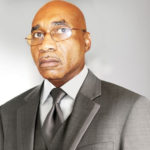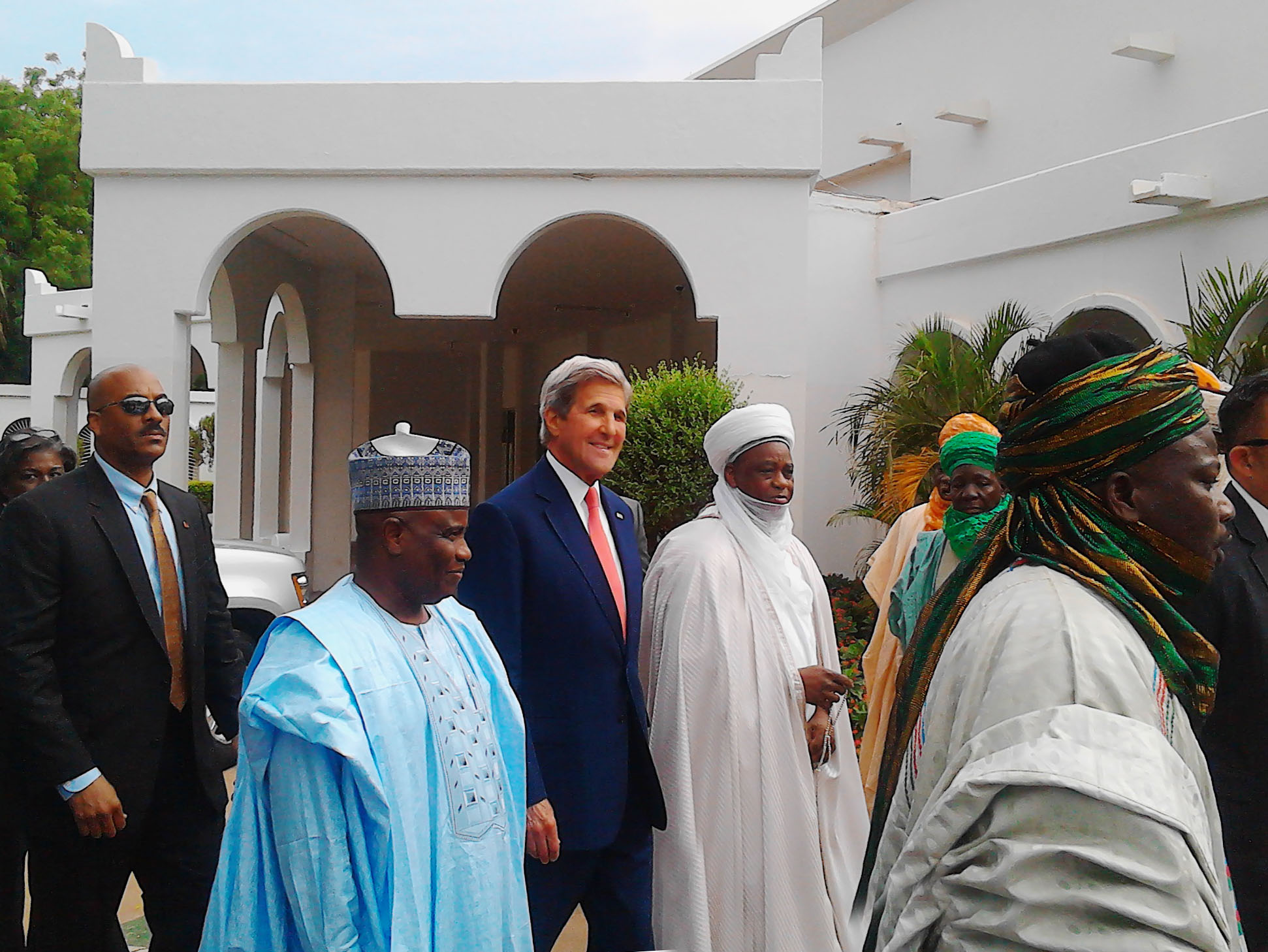Is John Kerry actually representing the United States or is he serving some incomprehensible interests?
Before the United States Secretary of State, John Kerry visited Nigeria last week, he placed his agenda on the table. With priority accorded to

corruption and security, the august visitor also wanted to discuss the state of the economy with Nigeria’s President Muhammadu Buhari. This visit which was hailed as the last possible engagement by a major American official during the Obama administration came at the right time; a dire period in Nigeria’s fragile democracy, where cries of hardship by a frustrated populace have replaced the national anthem. The visits also was billed to solidify a bilateral affiliation between the two countries after a period of strained relations.
Ordinarily, a top-ranking American diplomat visiting Nigeria would be expected to make as a first destination, the commercial hub of Lagos (the former Nigeria’s capital), or the seat of the government in Abuja. However that was not the case with this visit. Kerry headed straight to the city of Sokoto; predominantly Muslim and an important seat of Islamic learning situated in the extreme northwest of Nigeria
Kerry’s visit to Sokoto confirmed the devotion accorded to the Sultan of Sokoto—Muhammadu Sa’ad Abubakar III, as a strategic partner of the U.S., regarding sociopolitical issues in Nigeria and neighboring Muslim regions. The visit soon provoked a controversy. For instance, a prominent Christian group, Christian Association of Nigeria (CAN) voiced out their condemnation, accusing Kerry of being “discriminatory and divisive.” Another organization, the Foundation for Human Rights and Anti-Corruption Crusade also expressed concerns that the United States was fueling ethnic and religious tensions in Nigeria by supporting northern leaders.
These organizations might be right in their discontentment of Kerry’s itinerary. In a country divided since its independence in 1960 over ethnic and religious differences, it was awfully intolerant for Kerry to have flown in, socialized with Muslim clerics and winged off. He was in Nigeria on Monday and Tuesday, and was hosted by the Sultan of Sokoto, the most senior Islamic cleric in the country. He also met with 19 governors of Nigeria’s northern states and held talks with President Muhammadu Buhari, who is also a Muslim.
CAN president, Reverend Supo Ayokunle, said Kerry’s visit showed a “lack of respect for the heterogeneous nature of Nigeria” and favored the country’s Muslim population to the detriment of the Christian community.” Proponents of the regime however differ, praising Kerry’s visit to the Muslim region as an effective partnership strategy in strengthen America’s ongoing battle with Islamist extremism. The sultan is believed to have much leverage with Nigerian Muslims and was seen as the appropriate channel to get the U.S. message across in fighting terror.
Most observers believe that Nigerian Christians are under siege and are the major victims of a supposedly secular governmental system that is currently undermined by the regime. But during his visit, Kerry spent more time showering praises to his Muslim host rather than reveal his country’s position in assisting Nigeria with corruption, security, and state of their ailing economy. According to Ayokunle, Kerry’s actions speak volume; “his body language were very divisive.”
This is not the first time Kerry has crashed dabbling into a delicate Nigeria’s politics. Earlier in 2015 – during a heated Nigeria’s presidential campaign, Kerry inappropriately criticized the incumbent regime of President Goodluck Jonathan for an election postponement that was legally justified. He had impolitely issued a release expressing his deep disappointment about the postponement, urging that the Nigerian government not use security concerns as a pretext for impeding the democratic process.

Unfortunately for Kerry, the postponement was later vindicated. From all valuations, there was no way the election could have been held with the Chairman of the Independent National Electoral Commission (INEC), Professor Attahiru M. Jega admitting to poor supervision, and process unpreparedness.
Kerry was also criticized for overreaction – acting without adequate information from reliable agencies from the United States monitoring the developments. For example, shortly after Kerry’s release, the National Democratic Institute (NDI), a United States nonpartisan organization working to support and strengthen democratic institutions worldwide in collaboration with International Republican Institute (IRI) issued their report contradicting the secretary’s position on the issue.
This time, again, Kerry may have misled America with his senseless Nigeria’s visit. He may have goofed in his misguided Sokoto adventure. With Nigeria’s current governance predicament; the first major question would be, when has the Sultan become the country’s spokesperson on matters of corruption, security, the state of the economy? If the Sultan was a force in coordinating fights against terrorism and sectarian violence, why is Northern Nigeria in such a security mess?
If Kerry was serious about using traditional or religious rulers to boost his Nigeria’s security agenda, he could have visited the Chiefs in the Delta region also, where pollution perpetrated by major United States oil companies have ravaged many communities; and where government forces have been engaging local militants in bloody battles. Kerry also forgot to visit the Religious leaders or historically prominent chiefs in the Southern zones where the Fulani herdsmen armed by the regime destroy farmlands, and communities; and fatally attack individuals and families at will with sophisticated weapons.
The fact is that Kerry does not get it. His visit contradicted the very U.S. policy he endorsed. Earlier this month, the U.S. government through Kerry’s own office placed a danger alert on 20 States in Nigeria over security fears in the affected areas, claiming a lack of confidence in the Nigerian Army – to guarantee the safety of its citizens. The states affected were; Adamawa, Bauchi, Bayelsa, Borno, Delta, Edo, Gombe, Imo, Jigawa, Kaduna, Kano, Katsina, Kebbi, Kogi, Niger, Plateau, Rivers, Sokoto, Yobe and Zamfara.
With these states including those in the South-South and South-East, why does Kerry think that a visit on security with just the Sultan of Sokoto, and then all Northern governors were appropriate? How would Kerry’s visit to Sokoto solidify a bilateral relationship between Nigeria and United States? Is John Kerry actually representing the United States or is he serving some incomprehensible interests?
♦ Author, Anthony Obi Ogbo, Ph.D. is the publisher of Houston-based International Guardian.

Leave a Reply